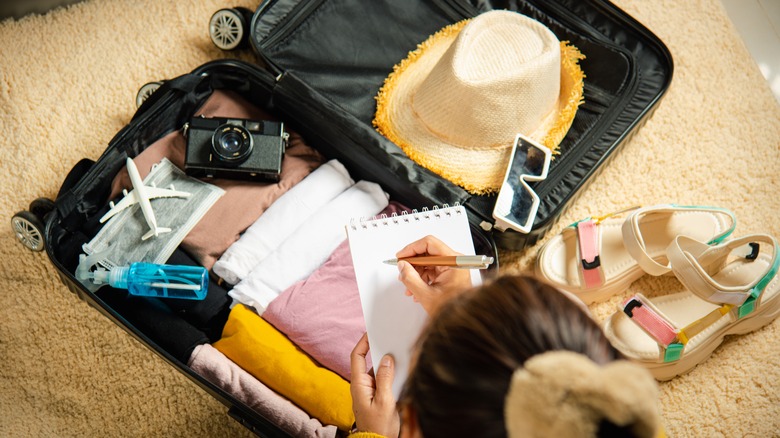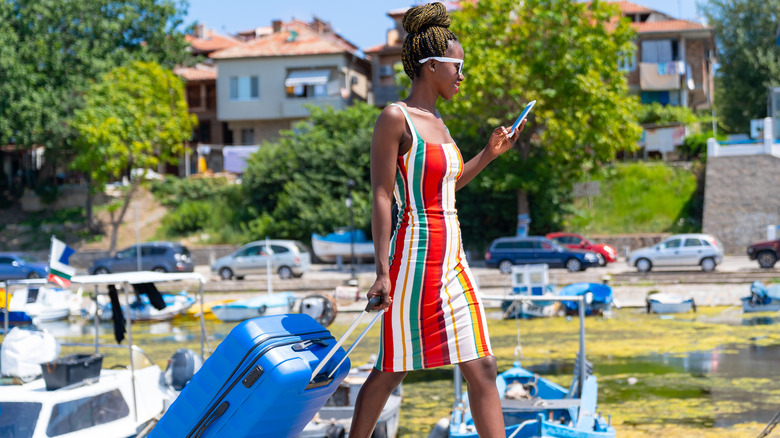Travel Guides Cruises
Lexi Kassler
Cruises are a great way to see the world with less effort and planning than your typical globetrotting adventure requires. You can see multiple destinations in the span of a week without ever having to change hotels, rent a car, or hop on yet another plane. Not only that, but packing for your cruise is also far easier than it would be if you were on the same itinerary traveling by plane.
That’s because cruises offer a little bit of extra flexibility you can’t get with an airline or at airport security. When packing for a cruise you won’t have to worry as much about overpacking since you aren’t charged extra for bringing luggage and there’s no pesky 3-1-1 rule (unless of course, you’re flying to your port of call).
So, yes, packing for a two-week trip around the Mediterranean just got way easier. No having to lug around heavy bags down narrow cobblestone streets or running out of your travel-size body wash. However, there are still some rules and regulations you need to consider.
Pack like a pro for your next cruise

Sorapop Udomsri/Shutterstock
Most cruise lines encourage passengers to bring up to two pieces of checked luggage per person and under 50 pounds each. Most cruise lines don’t have official restrictions on the number, size, or weight of luggage. However, you shouldn’t use this as an excuse to bring your entire closet with you. You will still need to lug that luggage some distance, even if it’s just from your car to the embarkment area. Not to mention the staff that will also have to carry it from the dock to your room.
In that luggage, you’re permitted to pack any full-size liquids that are not beer or liquor. You are, however, usually allowed to bring a couple of bottles of wine or champagne, as well as soda. Also, you can bring hairdryers and straightening and curling irons for your hair.
If you have some favorite snacks, bring them! As long as they’re pre-packaged and unopened when you board, they’re allowed. However, it’s not a free for all on cruises. You are not allowed to bring homemade snacks or half-eaten food unless it’s for your children, required for a specialty diet, or to accommodate a passenger’s food allergies.
Other items you shouldn’t bring unless you want to do the cruise walk of shame

Rocky89/Getty Images
There are some electrical items you are definitely not allowed to bring. These are clothing irons and steamers, electric kettles and coffeemakers, extension cords, and power strips. These all pose fire risks to the vessel and are mostly unnecessary for a couple of weeks at sea. Drones may also be on this list at times but it’s usually simply because they can’t be flown while underway.
Other items are a bit more common sense like weapons and drugs, including marijuana. And yes, unfortunately, this also includes CBD. While CBD is considered to be fairly innocuous in North America and Europe these days, in other parts of the world it can land you in jail.
Some other unexpectedly prohibited items are candles and incense due to the fire hazard they pose. Another item you’ll want to be careful with is your sunscreen. While this is an essential item to bring with you, some ports have bans on certain types of sunscreens. To be safe, bring sunscreen that’s reef-safe and mineral-based.

